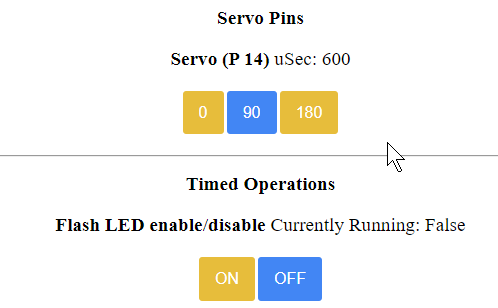Working with state in MicroPython Timer callbacks

MicroPython supports hardware and software timers with callbacks. Timers can be configured as single-shot or periodic events meaning they trigger only once or on a periodic basis. You can bind a Python function to the timer running in either mode. Your function will receive a callback whenever the timer rolls over or expires. Hardware timers are bound to the actual CPU timers and typically correlate 1:1 to hardware devices. This means the hardware timer configuration is hardware specific to the size and capabilities of the hardware timers. In general, you can only tie one callback to each timer because the callback is bound to the hardware timer interrupt handler. MicroPython also supports software timers. Software timers are the only option on CPUs like the ESP8266 where hardware timers are scarce or are dedicated to other functions. They have the same callback/handler restrictions as hardware timers. Video Content YouTube: Working ...

